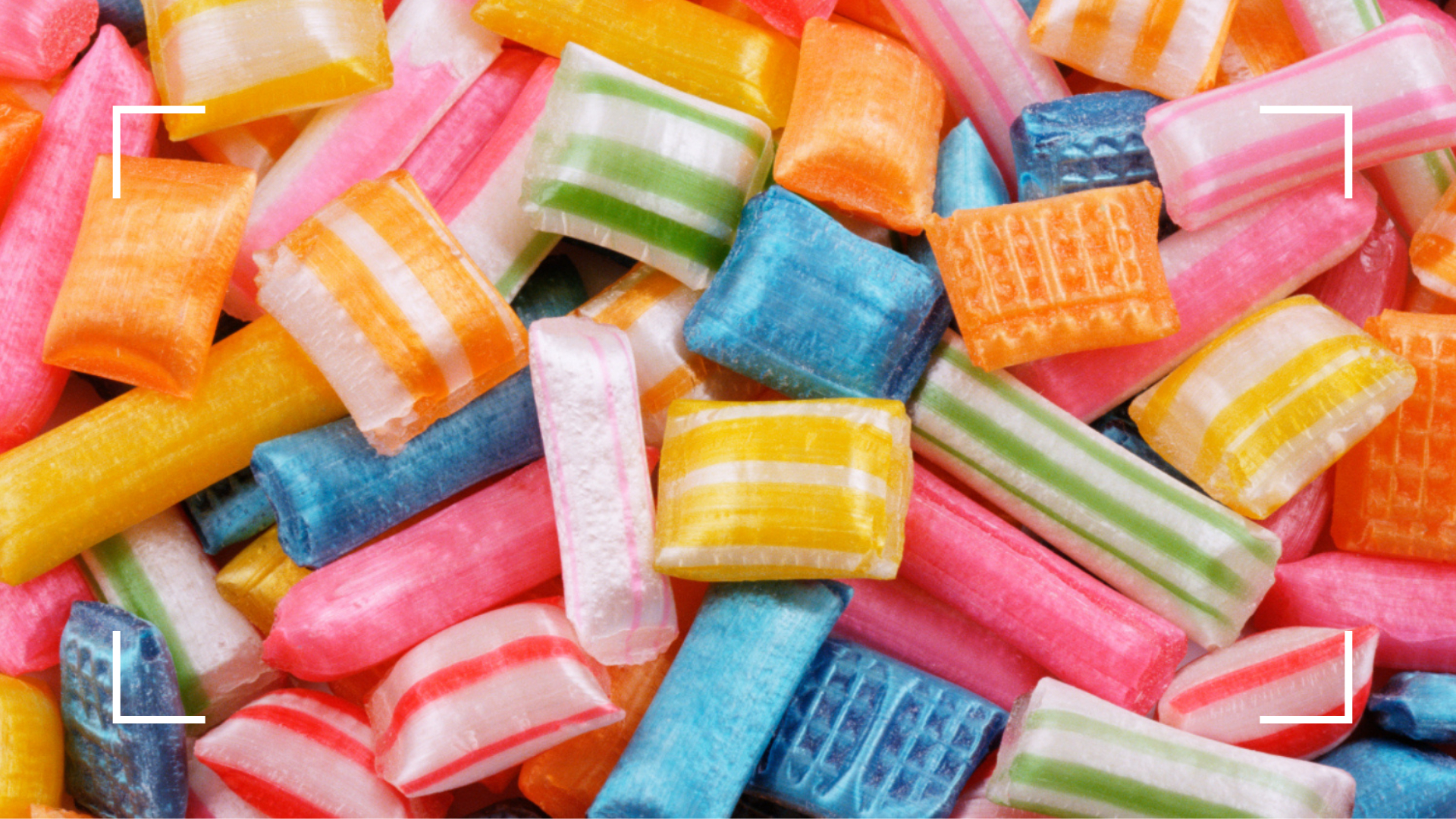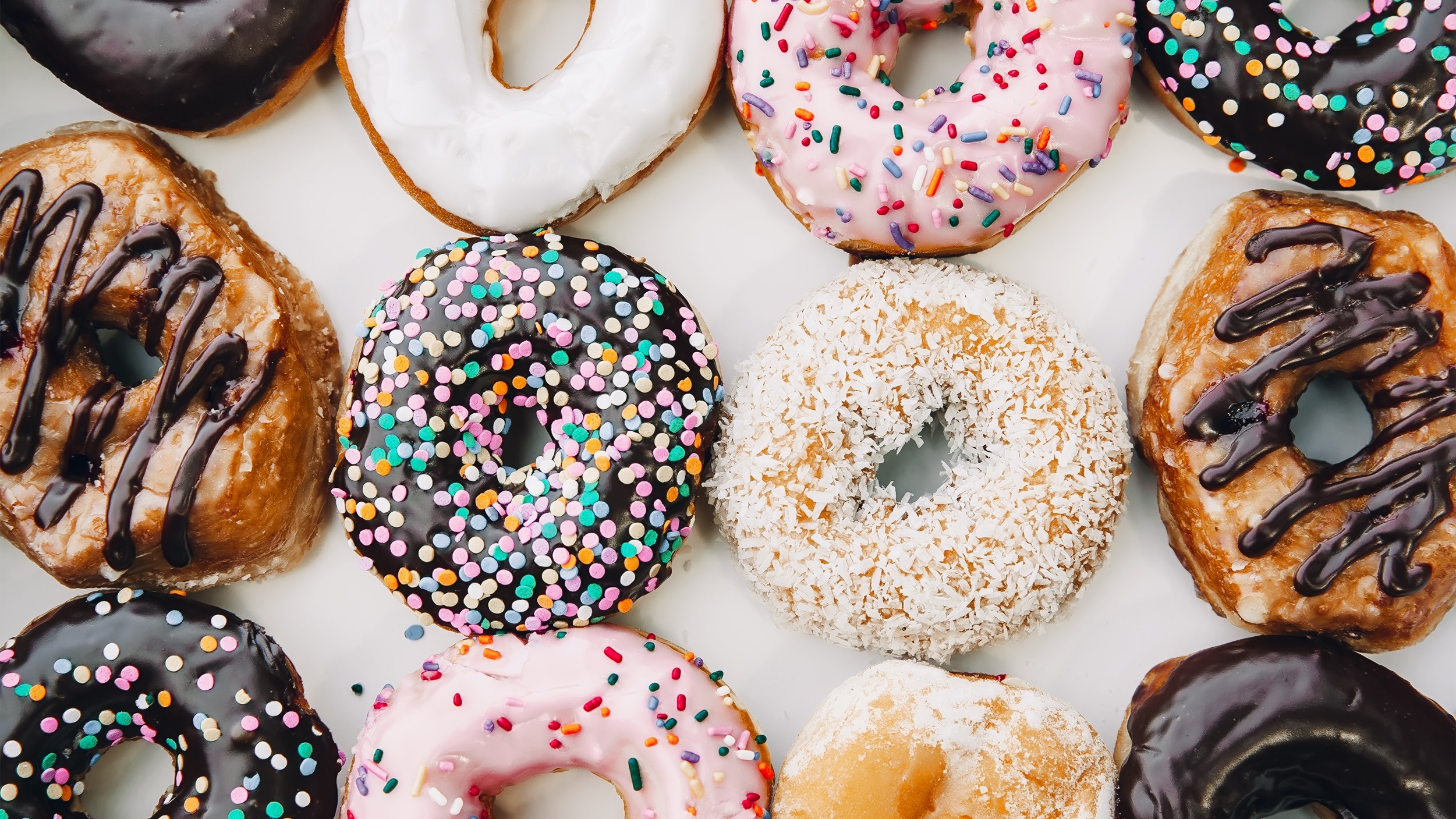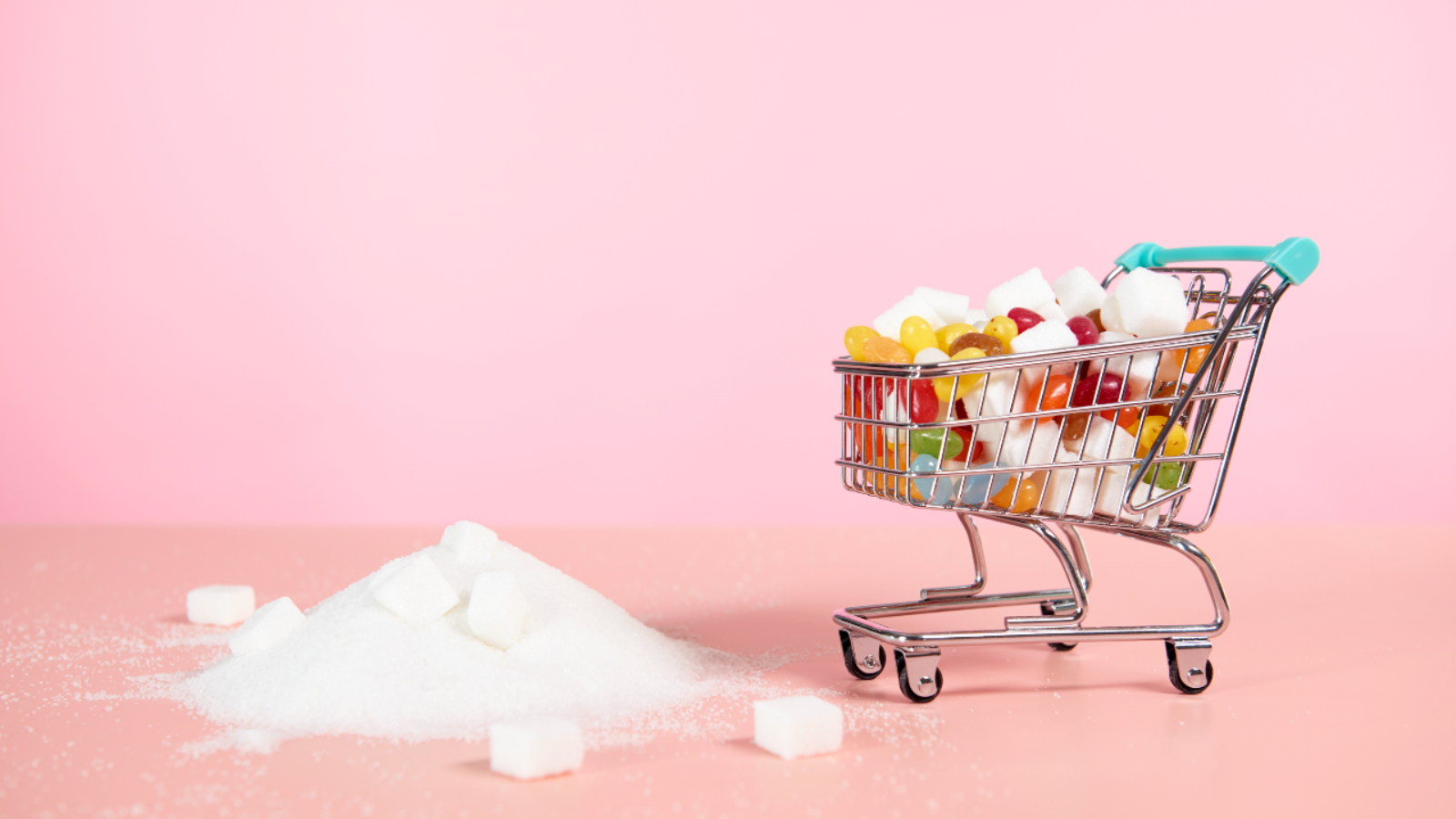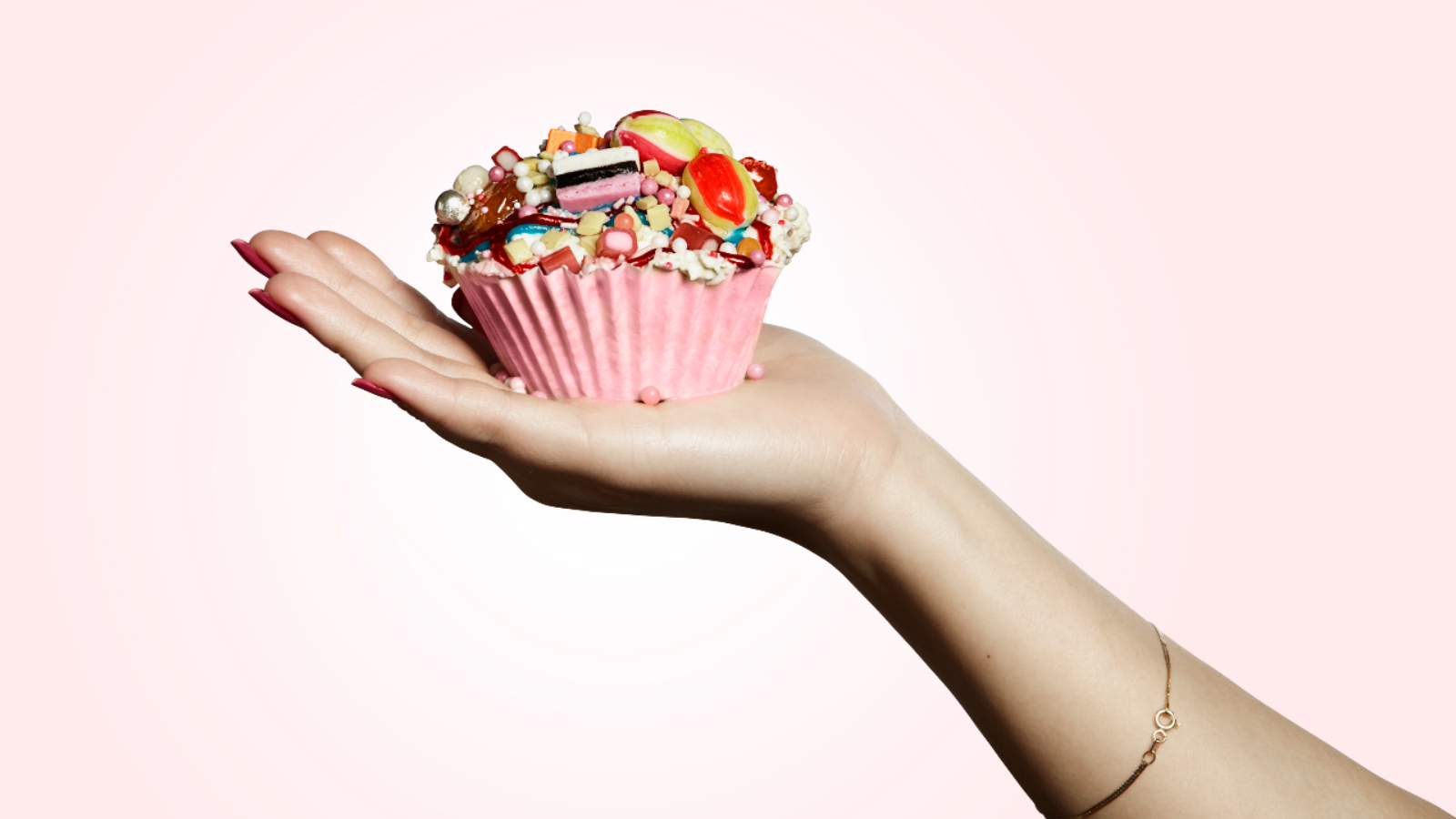This is why you get sugar cravings—plus how to beat them in eight simple steps
How to beat sugar cravings, according to the experts

Sugar cravings are so hard to control. Just one look at the soft crumbly sponge of a cake and the luscious folds of whipped buttercream is enough to trigger them for most of us. Before you know it, you’ve inhaled an entire slice. So what is it about that piece of cake that we find so hard to resist? According to the experts there are a number of things at play.
If you’ve nibbled on a candy bar this morning, tucked into sweet treats at the office or added a teaspoon of sugar to your coffee, you’ll know that the white stuff has become a staple of our modern diets. We could all benefit from limiting our sugar intake for a healthier lifestyle. Knowing how to stop picking up candy is easier said than done.
Enjoying sugary foods is perfectly normal. Back in a time when food was scarce, high-calorie food was both rewarding for our taste buds and for our survival. Although we’re no longer hunting for our next meal, sweet food still acts on our rewards systems in our brains, and for a lot of us, it has a positive effect on our moods—at least for a little while! But, why do we need that sweet hit? Scientists have revealed tiredness, hormones and even the sunshine (or lack of it!) could be the reason why these sugar cravings emerge.
If you're on a weight loss plan (our guide to how to lose a stone in a month might be of interest), or just want to nip cravings in the bud for a healthier diet, here's everything you need to know to beat your sugar cravings.
What are sugar cravings?
Sugar cravings are essentially when you have a strong urge to eat something sweet. "They are difficult to resist and are often associated with feelings of guilt once consumed," explains Hannah Braye, nutritional therapist at Bio-Kult.
You may find it difficult to control yourself around certain foods and, in more serious cases, this could lead to overeating or binge eating, potentially on a regular basis.
What’s more, the more sugar you eat, the more your body wants. That’s because our brains adapt to require more sugar to reap that same rewarding feeling. Scientists have found that sugar is as addictive and stimulates the same pleasure centers of the brain as cocaine or heroin. So, like a drug, your body becomes addicted and needs a bigger hit to feel happy.
Sign up for the woman&home newsletter
Sign up to our free daily email for the latest royal and entertainment news, interesting opinion, expert advice on styling and beauty trends, and no-nonsense guides to the health and wellness questions you want answered.
Why do I crave sugar?
There are many biological and psychological reasons why we experience sugar cravings. Understanding the reason why you might be delving into the cookie jar more times than ever may help you to stop snacking and curb that sugar habit.
1. You’re tired
According to Braye, we often crave sugar when we’re tired. "Sugar (glucose) is used preferentially by the body and brain as a quick source of energy. This could be why we have the urge to reach for refined carbohydrates and sugary foods when we feel tired and sluggish."
Sugar cravings may soar even higher during the winter, thanks to the darker, shorter days. The lack of sunlight means our brain produces more of the hormone melatonin, which can make us sleepy and in need of a sugar hit. After all, if you’re a bear, bat or even a bee, you’re hibernating at this time of year!

2. Your hormones aren’t happy
Could your hormones be the reason you're not losing weight? Keeping your hormones happy is a full-time job. Having just a slight hormonal imbalance can set our whole body out of whack. Serotonin (a hormone known to stabilize our mood, feelings of wellbeing, and happiness) can drop as a result of diet changes or elevated stress levels.
It can also be sensitive to the seasons, with levels falling during the winter months due to lack of sunlight—when sunlight enters our eyes it stimulates parts of our retina that trigger our brain to produce serotonin—and low levels of vitamin D.
But how do falling serotonin levels lead to sugar cravings? It’s due to that brain reward system. "Many people report an increase in positive mood shortly after eating a carbohydrate-rich meal," says Braye. This is because simple carbohydrates and sugars can increase our serotonin levels.
While serotonin is made in the brain from amino-acid tryptophan, carbohydrates are crucial in helping this process along. They cause our body to release insulin, which removes all amino acids—except tryptophan—from our blood. That means tryptophan has no competition and can enter our brain easily, boosting serotonin levels. Clever!
3. You don’t eat a balanced diet
If you’re not eating a balanced diet, including adequate amounts of lean protein and healthy fats, you may find your sugar cravings surge. When your body is only fuelled by refined carbohydrates it can cause a sudden spike in your blood sugar. As a result, the sudden injection of insulin released in order to cope with the sugar rush causes blood sugar levels to drop rapidly again, producing a 'sugar crash'.
This can make tiredness worse and perpetuate the sugar-crave cycle, as your body will once again crave food that will ramp up blood sugar and energy levels fast. So if you’re craving a candy bar an hour or two after eating a meal, it may be a sign that you need to increase the amount of protein and healthy fats on your plate.
Great sources of protein and healthy fats include chicken, tofu, avocado, eggs and nuts.

4. You’re stressed
Yes, there’s a reason why a hot cup of sugary tea can help you feel calmer. Researchers have discovered sugar reduces levels of cortisol (the stress hormone). A study, published in the Journal of Clinical Endocrinology and Metabolism, ran an experiment for 12 days where eight out of 19 volunteers consumed a drink sweetened with aspartame (an artificial sweetener), while the rest drank an identical beverage containing 25% regular sugar.
Scientists from the University of California, and the U.S. Department of Agriculture's Agricultural Research Service then asked the participants to perform a stress test—an arithmetic test designed to be just beyond their abilities—known to increase cortisol levels, while undergoing an M.R.I. scan. After the 12 days, cortisol tests revealed that levels were lower in the sugar consumers and higher in the aspartame group. What’s more, the M.R.I revealed the sugar group had increased activity in the areas of the brain controlling fear and stress, while the aspartame group showed decreased activity in these areas. You probably want to reduce your stress levels, however, rather than rely on sugar to chill you out.
5. You’ve created a bad habit
If you constantly crave a cookie with your morning coffee or always need dessert following dinner, it might be because you’ve built this habit into your lifestyle. Like others who bite their fingernails subconsciously, you might be snacking on sweet treats without even realizing it. We can blame our caudate nucleus in our brain for this. It’s responsible for forming new habits (good and bad!), which then become conditioned responses.
But whether you’re conscious or not, it’s still not doing you any good. Want to know if you need to break a bad habit? Ask yourself the questions: Are you even aware you’re doing it? Do you really want to be doing it? Are you truly craving what you’re eating?

How to stop sugar cravings
Giving in to sugar cravings too often can have a negative impact on your health. Discovering what your body really needs and meeting those requirements to tackle your cravings, will help you slash your sugar intake in no time.
- Up your vitamin D intake—take a supplement to reach your 10mcg RDI (recommended daily intake) and help boost serotonin levels and curb that craving.
- Snack on nuts—eating nuts can increase serotonin levels, as they're high in tryptophan. "Increasing tryptophan-rich foods such as nuts, seeds, chicken, turkey, oats, beans, lentils and eggs may help reduce cravings when trying to wean off sugar," says Braye.
- Break the habit—"many of us reach for sugary foods out of habit or for emotional comfort when we’re stressed," says Braye. To break these habits, you need to identify your triggers (is it a mid-morning energy slump or a reward for a long day?). "You can then start to put strategies in place to tackle these weak moments," adds Braye.
- Drink up and switch it up—"dehydration can often be misinterpreted as hunger or cravings," says Braye. Drink a large glass of water to see if the craving passes. "Food cravings can also happen when we’re bored," says Braye—it’s a way to escape monotony. Whether at home or work, try and change your activity.
- Prioritize sleep—good sleep hygiene, including making sure you set a regular bedtime, is important to ensure you’re getting enough shuteye each night. If you’re rested, your body isn’t fighting to get more energy.
- Listen to your hunger cue— be conscious of your body’s needs and eat when you feel hungry. If you allow yourself to get to an extreme level of hunger, this may trigger your body to crave carbs and sugars to get a quick energy boost.
- Eat lean protein and healthy fats—protein and healthy fats help make you feel satiated, as they are digested more slowly. When combined with complex carbohydrates, this trio will help you stay fuller for longer.
- Fill up on fiber— a high fiber diet not only provides you with energy, but it could also help keep your blood sugars steady, so you don't experience that "crash and burn" after eating. Increase fruit, vegetables, and whole grains in your diet. If a no sugar diet seems a little extreme for you and you need a sweet hit, why not snack on raspberries. They contain 7g of fiber per 100g—anything over 6g per 100g is considered high fiber.
woman&home thanks Hannah Braye, nutritional therapist at Bio-Kult, for their time and expertise.
Natalia Lubomirski is a health journalist with 16 years' experience in the publishing industry. She has worked for a number of well-known magazines and websites including Marie Claire, marieclaire.co.uk, woman&home, Top Sante, Boots and The Telegraph.
She likes to think she practices what she preaches when it comes to health and fitness. She loves the great outdoors and you’ll often find her up a mountain somewhere. She’s climbed eight major mountain ranges across four continents and hit the summit of Half Dome (in Yosemite) during her honeymoon.
-
 Le Creuset has taken the gold standard literally — their 100 year launch features real gold and an iconic designer collaboration
Le Creuset has taken the gold standard literally — their 100 year launch features real gold and an iconic designer collaborationLe Creuset have turned 100 years old and to celebrate they have launched a new colour — Flamme Dorée — as well as a coffee table book with designers Assouline
By Laura Honey Published
-
 This chic, Brazillian perfume brand is our beauty team's secret to smelling expensive and unique
This chic, Brazillian perfume brand is our beauty team's secret to smelling expensive and uniqueFrom salty accords to modern twists on tuberose, there's a Granado perfume for every preference - but these 9 blends have our heart...
By Naomi Jamieson Published